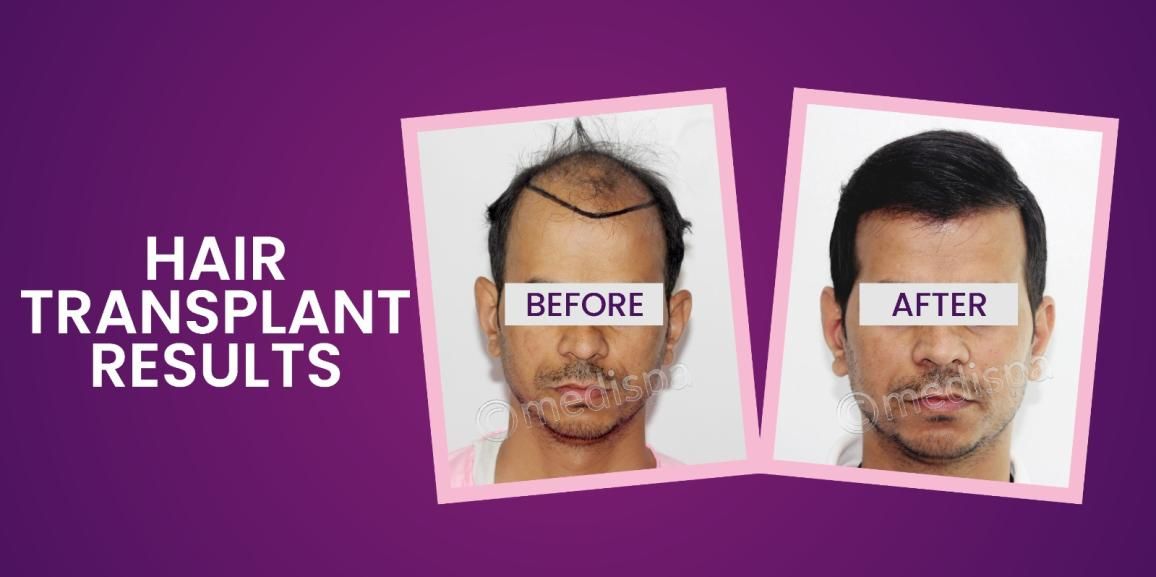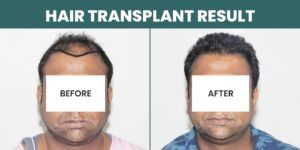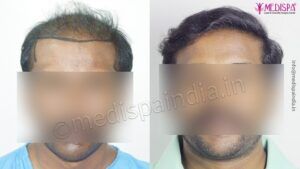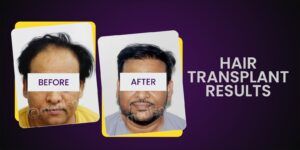
Is your hair loss progressing?
Rest assured, we offer a long-lasting remedy for it. Allow us to provide you with information about hair loss and its effective permanent solution. Look no further than hair transplant, which effectively addresses your hair loss issue once and for all.
How one could go bald?
Hair loss is primarily attributed to genetic dysfunction. If your grandparents or parents have experienced hair loss, there is a likelihood that you may also be susceptible to it. Hair loss can be categorized as either temporary or permanent. Temporary hair loss can be treated without medical intervention, whereas permanent hair loss requires medical attention.
There are other factors that can contribute to hair loss, such as hormonal imbalances, systemic diseases, or trauma. It is often observed that baldness predominantly affects the front and vertex areas of the scalp, leaving a band of hair at the back and sides of the head in later stages. These affected hair follicles are sensitive to DHT (dihydrotestosterone) and contain receptors for androgen hormones. As a result, they undergo thinning and miniaturization, ultimately leading to hair loss.
Once these hair follicles are lost, they cannot be regenerated through current medical procedures.
Hair loss management
The issue of hair loss has been tackled through various methods:
- Temporary solutions like wigs, extensions, and artificial hair: These methods are temporary modalities but needs continuous need for replacement and maintenance can become quite burdensome. In addition, these options often look unnatural and fail to deliver natural-looking results. Moreover, the cost of using these assistive devices long-term can be high due to the frequent need for replacement every six to twelve months.
- Medication: Finasteride and minoxidil are the two prevailing medications available for addressing hair loss concerns. Their primary purpose is to slow down the progression of hair loss and promote hair growth, although the outcomes may not be consistently predictable. Research indicates that discontinuing the use of these medications can lead to a relapse of hair loss. Due to the inherent adverse effects associated with all medications, prolonged usage is not recommended.
- Hair transplant: It is widely regarded as a highly successful remedy for hair loss, owing to its favorable outcomes. This procedure entails the transfer of hair follicles from designated donor sites on your body to the areas affected by baldness. The primary objective of this treatment is to restore the appearance of eyebrows, beard, and mustache, while also concealing any bald patches on the scalp.
Dr. Suneet Soni (MCh Plastic Surgeon), a renowned hair transplant surgeon in India, delivers exceptional results in hair transplantation. His expertise and keen eye for aesthetics set him apart as one of the leading surgeons for hair transplant in Jaipur. Recognized at various national and international conferences for his research and contributions to the field, Dr. Soni ensures long-lasting and appealing outcomes for his patients. Despite the high standard of care provided by other hair transplant clinics, the hair transplant cost in Jaipur remains quite affordable.
Why to go for a hair transplant compared to other treatment options?
We purchase various cosmetic products to address hair loss, such as lotions, shampoos, and conditioners, but their effectiveness remains unproven.
Alternative short-term solutions for concealing baldness include hair wigs, suction wigs, hair extensions, parting preferences, embracing complete baldness, and shaving the head. Despite being demanding, these treatment options effectively mask the bald patches.
Two treatments for hair loss are available: finasteride, an oral medication, and minoxidil, a topical lotion that can be bought over the counter. These medications are formulated to accelerate hair growth and slow down the progression of hair loss. While the results are promising, their long-term efficacy is uncertain as hair loss may resume if the treatment is discontinued.
- Hair transplant is the most effective solution for hair loss, offering permanent results.
- The results of a hair transplant are natural and seamless, making it undetectable.
- Patients experiencing progressive hair loss can benefit from the long-term advantages of multiple hair transplant sessions.
- Hair transplant can significantly boost your confidence by providing maximum coverage to your balding areas.
How to assure the permanent results following hair transplant?
Hair transplantation offers long-lasting results, however, this may not be the case for every individual. It is crucial to entrust the delicate hair follicles to a skilled surgeon, as the success of the procedure heavily relies on their expertise. The choice of surgeon plays a significant role in ensuring permanent outcomes, as they can provide essential factors that contribute to the success of the treatment.
- Ensure minimal harm to hair grafts: Hair grafts are extremely fragile and require careful handling, extraction, and transplantation. It is crucial to select skilled professionals who can minimize the risk of damage to the hair grafts. The doctor’s strict supervision and an experienced team are essential for the proper handling of the hair grafts. By ensuring the survival of the hair grafts, a permanent hair transplant can be achieved.
- Selection of appropriate method: The hair transplant method is determined according to the specific requirements and circumstances of the patient. Opting for the correct method is crucial in ensuring the long-term survival of the transplanted hair grafts. It is possible for inexperienced surgeons to mistakenly over-harvest the donor site or violate the safe donor area, which can have a negative impact on the permanence of the outcomes. By carefully selecting the appropriate method, the risk of damage can be minimized, and one can confidently expect permanent results following a hair transplant.
- Proper postoperative care is essential: While it may seem like the transplanted hairs will simply grow on their own after the procedure, they will actually need some attention from you in the days following. It is crucial to adhere to the surgeon’s postoperative instructions diligently until your full physical recovery. Neglecting proper aftercare can result in the loss of transplanted hair follicles for many patients. Therefore, it is imperative to exercise extreme caution and strictly follow all directions provided by your hair transplant team until you have fully recovered physically.







